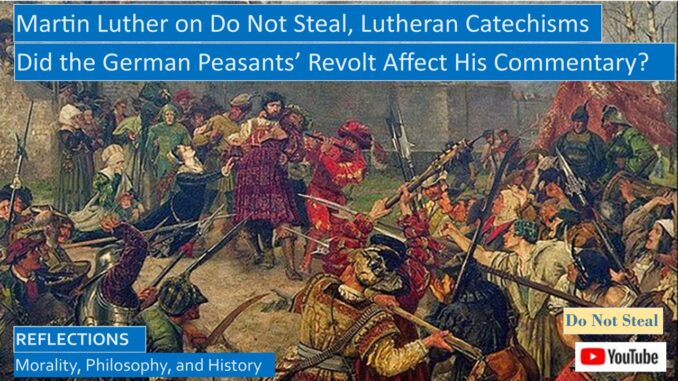
What can we learn from Martin Luther’s commentary on the commandment, Do Not Steal, in his Large Catechism and Small Catechism?
What are his reflections on the negative commandment? What are his reflections on the positive form of this commandment?
Did Luther’s writings on the German Peasant’s Revolt impact his commentary?
What were his instructions to the peasants, merchants, and nobility regarding this commandment?
What obligations do Christians have to the poor among us?
YouTube Script with Book Links:
https://www.slideshare.net/BruceStrom1/martin-luther-the-german-peasants-revolt-and-do-not-steal-in-the-lutheran-catechisms
Please see the YouTube video: https://youtu.be/0ZYeEB2OTC4
MARTIN LUTHER, DO NOT STEAL
Martin Luther, in the Small Catechism, like the Jewish rabbis, emphasizes that each commandment can be rendered both as a negative commandment and a positive admonition.
To the question in the Small Catechism: “Thou shalt not steal: What does this mean?”
Answer: “We should fear and love God so that we may not rob our neighbor of his money or property, nor bring them into our possession by dishonest trade or by dealing in shoddy wares but help him to improve and protect his income and property.”[1]
In his Large Catechism, Luther elaborates: “Stealing is nothing else than to acquire another’s property by unjust means, including taking advantage of our neighbor in any dealing that results in a loss to him,” whether you steal at gunpoint or by cheating in the marketplace makes little difference.
But who does Luther first admonish against theft? Servants, who “through laziness, carelessness, or malice wastes things to the vexation and annoyance of his master or mistress.” And indeed, we should all strive to work for our managers as if we were working for Jesus, but managers have the responsibility to pay their employees a living wage. If they don’t, how harshly can we condemn minimum wage employees for stealing to feed their families?[2]
Indeed, St John Chrysostom in his homily on Lazarus, which is also quoted in the Catholic Catechism, teaches us that when we do not “enable the poor to share in our goods is to steal from them and deprive them of life. The goods we possess are not ours, but theirs.”[3]
Historians can argue that Luther’s views reflected the iron-clad class distinctions of medieval society, divided into those who prayed, those who fought, and those who worked, and that God pre-ordained your station in life. But that does not justify cruelty, Jesus exhorts us to challenge our culture when it conflicts with the commandment to love our neighbor.
PROTESTANT REFORMATION AND GERMAN PEASANTS’ REVOLT
Did Luther side with the merchant and land-owning classes to the detriment of the peasants? We need to reflect on the early years of the Protestant Reformation. Luther unwittingly sparked a revolutionary movement when he posted the incendiary Ninety-Five Theses.
These were indeed revolutionary in their boldness; this thesis reflects the resentment by many of the indulgences sold that helped finance the construction of the massive St Peter’s Basilica in Rome:
86. “Why does not the Pope, whose wealth is today greater than the wealth of the richest Crassus, build this one basilica of St Peter’s church with his own money rather than with the money of poor believers?”
But what is not emphasized by many historians is how inflammatory many of these theses were, this was likely one of the most offensive theses:
75. “To consider papal indulgences so great that they could absolve a man even if he had done the impossible and had violated the Mother of God is madness.”[4]
Foolishly, the Roman Catholic Church, instead of compromising with Luther, chose to challenge him, giving him a choice at the Diet of Worms between recanting all his works or rebelling. We know his response: “Here I stand, so help me God.”
Martin Luther was excommunicated and placed under imperial edict, which could have resulted in a death sentence, but Prince Frederick III, Elector of Saxony, where Luther lived, granted him refuge. Luther never left Saxony as the edict was never lifted. Many Lutheran princes converted to the rival church that Luther was compelled to form, turning this into a political struggle.[5]
Historically, revolutions often become more radical with time. In 1524, the German Peasant’s War, encouraged by the inflammatory rhetoric of the Protestant Revolution, broke out with the encouragement of radical preachers like Thomas Muntzer. This was the most widespread and popular uprising before the French Revolution centuries later and was suppressed when the aristocracy slaughtered between 100,000 and 300,000 peasants.
Initially, Luther sought a middle road, criticizing the injustices imposed on the peasants, while criticizing the violence of their rebellion. But his position hardened, he needed the support of the nobility to support the Reformation, Luther was always vitriolic, as can be seen from the title of his pamphlet, Against the Robbing Murderous Hordes of Peasants, which stated that the peasants “must be sliced, choked, stabbed, secretly and publicly, by those who can, like one must kill a rabid dog.” But after the peasants were brutally suppressed, Luther criticized the brutality of the suppression.[6]
Why was I compelled to quote Wikipedia for this history? Although this ugly history of Luther’s response to the brutal German Peasant’s Rebellion is a key event in the life of Martin Luther, many of the dedicated biographies sympathetic to Luther gloss over this event, mentioning it only in passing. But this ugly history does shed light on Luther’s teachings for the commandment, Do Not Steal, and on the church’s refusal to protect its most vulnerable peasants.
Looking forward, the notion that the lower rungs of society should be paid a living wage did not gain traction until the French Revolution and its long aftermath, and in particular with Pope Leo XIII’s 1891 encyclical, Rerum Novarum, the Rights and Duties of Capital and Labor, which sparked the Catholic social justice movement, and may have been an inspiration for FDR’s New Deal.[7]
LUTHER, LARGE CATECHISM, DO NOT STEAL
But Martin Luther, flawed as he is, does have much to teach us. Luther condemns “artisans, workmen, and day laborers who act high-handedly and never know enough ways to overcharge people and yet are careless and unreliable in their work.” He condemns the merchants who “openly cheat with defective merchandise, false measures, and dishonest weights,” and who “takes advantage of others by underhanded tricks and sharp practices and crafty dealing.”
But Luther does urge us to be “beware of how we deal with the poor, of whom there are many. If, when you meet a poor man who must live from hand to mouth,” you act if you are better than he, and you “scrape the poor down to their bone, and arrogantly turn him away when you ought to give aid. When the poor go away wretched and dejected because he can complain to no one else, he will cry to heaven.”
Luther opines that “God, who watches over poor, sorrowful hearts, he will not leave them unavenged.” But, we must be God’s instrument in this endeavor, but Luther does not discuss exactly how we must ensure that the poor are dealt with fairly.
Luther does not admonish the nobility to ensure that their peasants earn enough to feed and support their families with dignity. Rather, Luther only proclaims that it is “the responsibility of princes and magistrates” “to restrain open lawlessness.” “They should be alert and resolute enough to establish and maintain order in all areas of trade and commerce in order that the poor may not be burdened and oppressed.”
Luther concludes by restating the positive and negative forms of the commandment, noting that tolerating theft by others by doing nothing also is a moral violation. “On one hand, we are forbidden to do our neighbor any injury or wrong in any way imaginable, whether by damaging, withholding, or interfering with his possession and property. We are not even to consent to or permit such a thing but are rather to avert and prevent it. On the other hand, we are commanded to promote and further our neighbor’s interests, and when he suffers want, we are to help, share, and lend to both friends and foes.”[8]
PREVIOUS VIDEOS
We have previously discussed Martin Luther’s admonitions on the commandments, Do Not Slander and Do Not Covet. In our video and blog on Do Not Covet, we reflect on the anti-Semitism of Martin Luther. We also reviewed the history of the Catholic and Lutheran Catechisms.
Martin Luther’s Catechisms on Do Not Envy, and Confronting Luther’s Anti-Semitism
Martin Luther, Large Catechism on Decalogue, Do Not Envy, and Anti-Semitism
Martin Luther, Do Not Slander, Lutheran Catechisms
https://seekingvirtueandwisdom.com/luther-on-do-not-bear-false-witness-against-your-neighbor/
https://youtu.be/jM2FrvyKsbk
The Decalogue, Vatican II, and the Catholic and Lutheran Catechisms
http://www.seekingvirtueandwisdom.com/who-should-study-the-catholic-catechism/
https://youtu.be/i8WXS7l4OzE
DISCUSSING THE SOURCES
Our primary sources are the Lutheran Small and Large Catechisms, which are included in the Book Concord, the book of the faith of the Lutheran Church. We have a video on Book Reviews for books that discuss the Decalogue, or Ten Commandments, and on Vatican II.
The Great Courses lectures on Martin Luther by the Lutheran Professor Philip Carey are as balanced as they are excellent.
Book and DVD Reviews on the Ten Commandments, or Decalogue
https://seekingvirtueandwisdom.com/book-and-dvd-reviews-on-the-ten-commandments-or-decalogue/
https://youtu.be/KptDGFJG0TE
[1] Martin Luther, Book of Concord, translated by Theodore Tappert, assisted by Jaroslav Pelikan (Philadelphia: Fortress Press, 1976, 1959, originally 1580), Small Catechism, Seventh Commandment, p. 343.
[2] Martin Luther, Book of Concord, Large Catechism, Seventh Commandment, p. 395.
[3] Catechism of the Catholic Church, 2nd Edition (Washington DC: US Catholic Conference: 1997), CCC 2446, p. 587, quoting St John Chrysostom, Hom. In Lazar 2, 5: PG 48, 992.
[4] https://holyword.church/miscellaneous-resources/martin-luther-and-his-95-theses/ and https://en.wikipedia.org/wiki/Ninety-five_Theses
[5] https://en.wikipedia.org/wiki/Martin_Luther
[6] https://en.wikipedia.org/wiki/German_Peasants%27_War
[7] https://en.wikipedia.org/wiki/Rerum_novarum
[8] Martin Luther, Book of Concord, Large Catechism, Seventh Commandment, pp. 395-399.

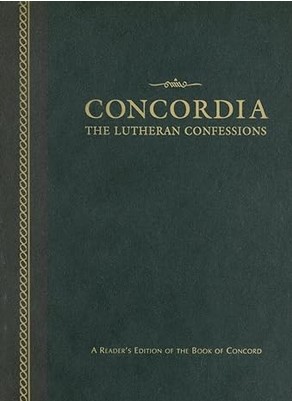
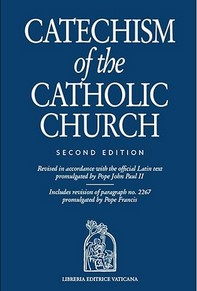
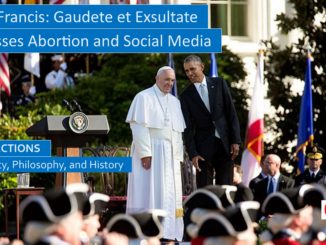
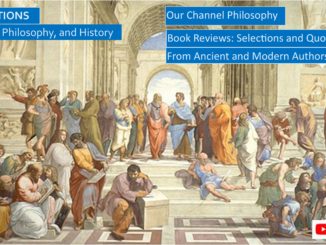
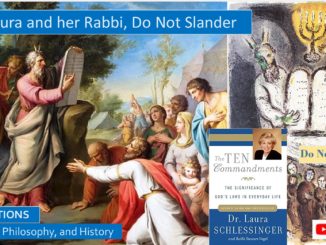
Be the first to comment